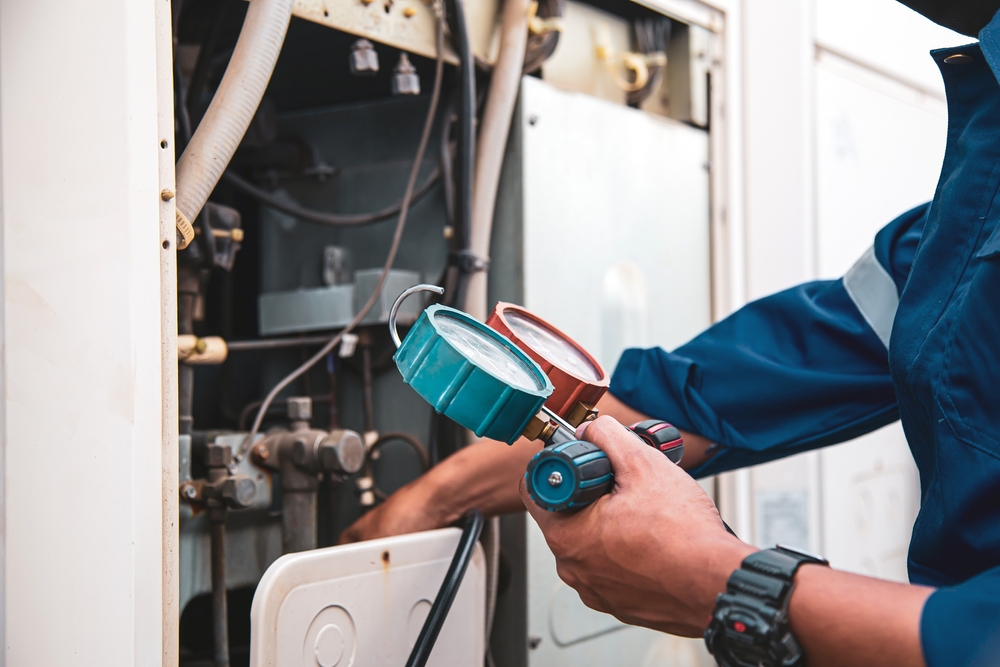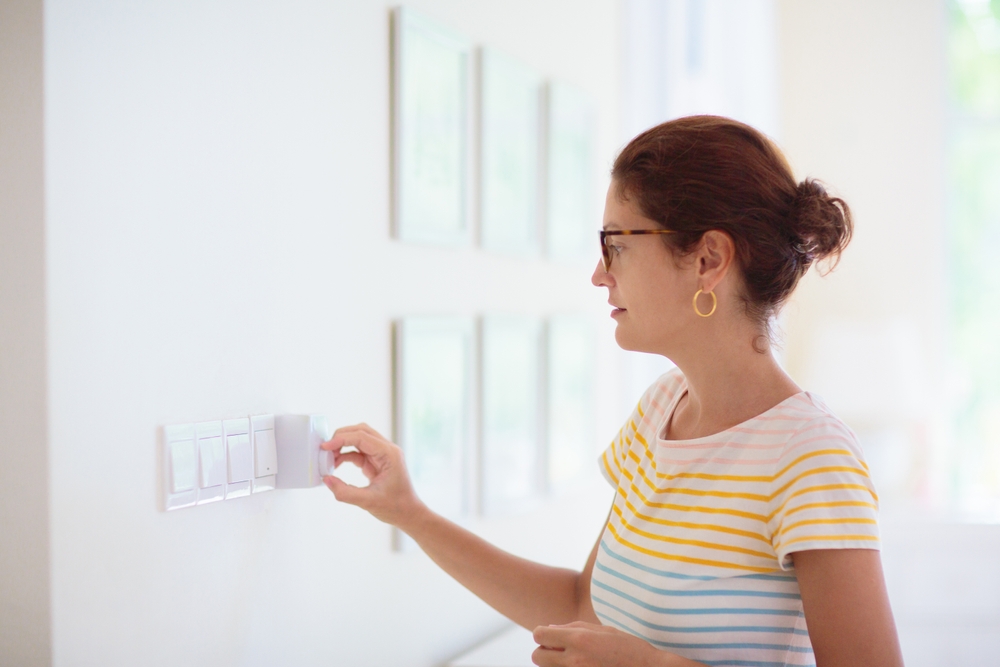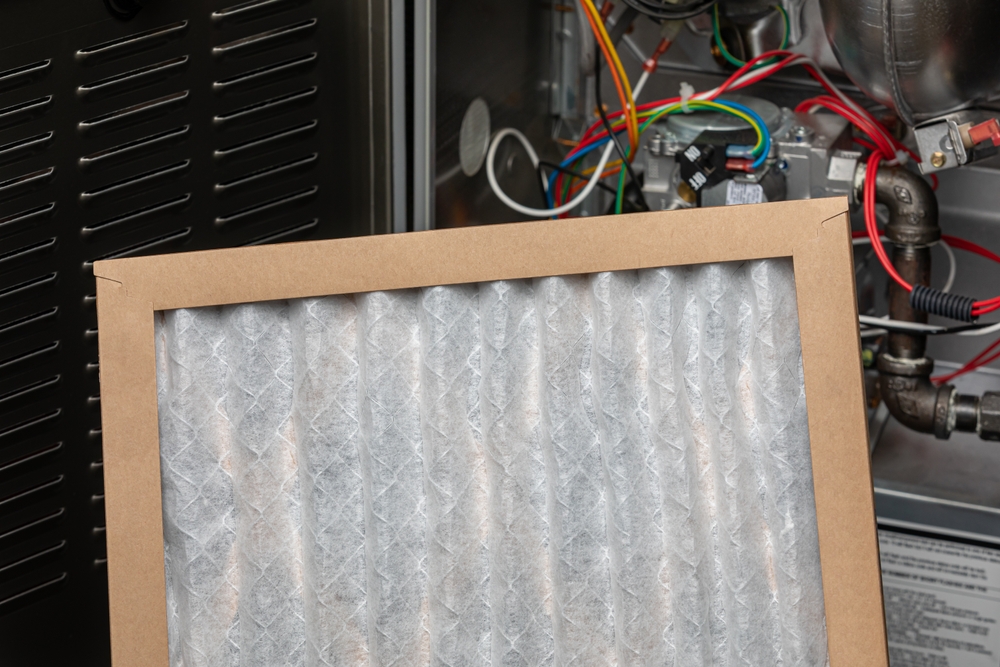Gas ducted heating systems are the backbone of comfortable Australian winters, but when your quiet gas heating system starts sounding like a freight train or your energy bills skyrocket, it’s time to take action. The good news? Most homeowners can dramatically improve both quiet operation and energy efficiency through simple maintenance tasks that cost nothing but a bit of weekend time.
Melbourne families spend an average of $1,200 annually on heating costs, yet many could slash this by 25% simply by understanding the connection between system noise and wasted energy. When your ducted heating system runs quietly, it’s typically running efficiently. Conversely, those mysterious bangs, whistles, and grinding sounds often signal your system is working overtime, burning extra gas and driving up bills.
Professional heating maintenance plays a crucial role, but there’s plenty you can safely tackle yourself. From filter replacement to vent cleaning, these DIY tasks not only reduce noise but can improve system efficiency by up to 20%. The key is knowing which maintenance jobs are homeowner-friendly and which require a licensed gasfitter.
This guide reveals exactly how to keep your gas heating system purring quietly while minimising energy waste. You’ll discover the warning signs that demand immediate professional attention, learn proven techniques for efficient heating operation, and understand when DIY efforts should give way to expert intervention.
Understanding Normal vs Concerning Heating System Sounds
Every gas ducted heating system produces operational sounds, but distinguishing between normal function and warning signs helps Australian homeowners identify when professional heating service becomes essential.

Normal Operational Sounds
Well-functioning systems generate predictable sounds that indicate proper operation. The soft whoosh of air movement through vents represents normal airflow distribution throughout your home. Low humming from fan operation demonstrates the blower motor circulating heated air efficiently. Occasional mild expansion sounds occur as metal ductwork heats during startup, particularly common in Melbourne’s variable winter temperatures. These sounds require no immediate action and typically indicate your heating system is performing as designed.
Warning Signs Requiring Professional Attention
Concerning heating system noise patterns, demand immediate assessment by qualified technicians. Loud banging or booming sounds often indicate delayed ignition, where unburnt gas accumulates before suddenly igniting, a serious safety hazard requiring urgent professional gas heating repairs. High-pitched whistling that persists after filter replacement suggests restricted airflow from blocked ducts or undersized ductwork. Grinding or squealing from the furnace area indicates failing motor bearings, whilst deep rumbling from the burner compartment may signal dirty burners or potentially dangerous cracked heat exchangers.
According to Energy Safe Victoria, systems producing these concerning sounds typically operate 20-30% less efficiently than properly functioning units, directly impacting your winter heating bills and potentially compromising household safety.
Safe DIY Maintenance Tasks for Homeowners
Australian homeowners can safely perform several heating maintenance tasks that significantly impact both noise levels and system efficiency without requiring professional intervention.
Filter Maintenance
Filter replacement represents the most critical homeowner responsibility for maintaining quiet heating system operation. During Melbourne’s heating season from May through September, filters should be inspected monthly depending on household conditions. Located in the return air grille, these filters trap dust and debris that would otherwise accumulate throughout your gas ducted heating system. Clean filters improve airflow by up to 15%, reducing fan strain and associated noise whilst maintaining optimal heating performance. The Australian Government’s energy efficiency guidelines emphasise that regular filter maintenance can reduce energy consumption by 15-20% annually.
Vent and Grille Cleaning
Systematic vent cleaning ensures unobstructed airflow throughout your ducted system. Remove vent covers and wash them thoroughly in warm soapy water, ensuring complete drying before reinstallation to prevent moisture damage. Vacuum accessible ductwork gently to remove accumulated dust and check for foreign objects like toys or crayons that children may have dropped through vents. Maintain at least 30 centimetres of clearance around all heating outlets by repositioning furniture or curtains that restrict airflow. Clear outdoor units of grass clippings, leaves, and spider webs that commonly obstruct ventilation in Australian conditions.
Basic Visual Inspections
Monthly visual inspections help identify developing problems before they escalate into costly repairs requiring professional ducted heating service. Check accessible ductwork in roof spaces or under floors for obvious damage, loose connections, or compressed insulation that reduces heating efficiency. Test your thermostat’s responsiveness to temperature adjustments and replace batteries annually to maintain accurate temperature control. These simple tasks, requiring less than one hour monthly, prevent many common heating system problems whilst ensuring optimal energy efficiency throughout winter.
Professional Service Requirements and Safety Boundaries
Understanding when professional heating service becomes essential protects both your family’s safety and your gas ducted heating system investment, particularly given Australia’s strict regulatory requirements.

Mandatory Professional Services
Australian law strictly defines work requiring licensed gasfitter expertise for all gas heating systems. Only Type A licensed gasfitters can legally perform any work on gas lines, connections, or internal furnace components. This includes mandatory carbon monoxide testing, now required under AS 4575 standards since June 2022 in Victoria. Professional servicing every two years isn’t merely recommended; it’s a legal requirement for rental properties and necessary to maintain manufacturer warranties. Licensed technicians must provide compliance certificates documenting their work, which homeowners should retain for warranty and insurance purposes. For a comprehensive gas heating service that meets all regulatory requirements, professional maintenance ensures both safety and optimal system efficiency.
Emergency Situations
Gas safety emergencies require immediate professional intervention without attempting DIY solutions. Any gas odour demands evacuating the area, avoiding electrical switches, and calling the gas emergency line on 136 186. Yellow or orange flames instead of blue indicate combustion problems requiring urgent attention from qualified technicians. Carbon monoxide risks, though odourless and invisible, manifest through symptoms like headaches or nausea that worsen when heating operates and improve upon leaving home.
Warranty and Insurance Considerations
Maintaining manufacturer warranty validity requires documented professional maintenance according to specified schedules. Insurance claims for heating-related damage may be denied if required servicing hasn’t been performed by licensed professionals.
Energy Efficiency Optimisation Strategies
Maximising energy efficiency through proper heating system management can reduce Melbourne households’ winter energy bills by hundreds of dollars annually, whilst maintaining optimal comfort levels.

Thermostat Management
Strategic thermostat control represents the most immediate opportunity for energy savings in Australian homes. Setting your thermostat between 18-20°C provides optimal comfort whilst minimising gas heating consumption, with each degree above 20°C increasing heating costs by approximately 10-15%. Sustainability Victoria research demonstrates that Australian households can save $200-300 annually through proper temperature management alone. Programmable thermostats automatically adjust temperatures based on occupancy patterns, preventing energy waste when homes are empty during work hours or overnight periods. Modern smart thermostats learn household routines and optimise heating efficiency by anticipating temperature needs, delivering additional savings of 8-15% compared to manual temperature control.
Home Thermal Performance Enhancement
Home insulation improvements work synergistically with gas ducted heating maintenance to maximise overall energy efficiency. Ceiling insulation reduces winter heat loss by 25-35%, whilst draught sealing around doors and windows prevents expensive heated air from escaping. Heavy curtains with pelmets, opened during sunny periods and closed at night, provide additional thermal barriers against heat loss. These improvements complement proper heating maintenance by creating a well-maintained heating system in a properly insulated home that uses up to 50% less energy than a neglected system in a thermally poor environment, demonstrating the compound benefits of comprehensive heating optimisation strategies.
The Maintenance-Performance Connection
The relationship between regular heating maintenance and system performance is both measurable and scientifically documented, with properly maintained systems delivering significant advantages over neglected units.
Technical Performance Relationships
Clean filters and unobstructed vents ensure proper airflow, reducing the fan speed required to distribute heated air effectively. This lower operational stress translates directly to quiet heating system operation and 15-20% energy savings compared to systems with dirty filters. Well-maintained blower motors operate more smoothly, eliminating vibration noises whilst consuming less electricity during operation. Properly secured ductwork prevents both rattling sounds and air leaks that can waste 10-30% of heated air before it reaches living spaces. Professional servicing addresses deeper heating efficiency issues that homeowners cannot safely tackle.
Financial Benefits Analysis
The economic advantages of proper gas ducted heating maintenance extend far beyond immediate energy cost reductions. Regular professional heating service prevents emergency breakdowns that often occur during peak winter periods when repair costs are highest and availability is limited. Australian data shows professionally serviced systems last 3-5 years longer than neglected units, with the extended lifespan value representing substantial savings depending on system size. Maintaining manufacturer warranty validity protects against expensive component failures, whilst insurance claims for heating-related damage may be denied if required servicing hasn’t been performed. When factoring in all benefits, annual servicing costs typically pay for themselves within the first year through energy savings alone.
Take Action for Quieter, More Efficient Heating
Understanding the balance between safe DIY heating maintenance and professional heater service ensures your gas ducted heating system operates quietly and efficiently throughout Melbourne’s demanding winter months.
Regular filter replacement, vent cleaning, and basic visual inspections represent tasks any homeowner can perform safely, significantly impacting both system noise and energy efficiency. These simple actions, combined with proper thermostat management, can reduce heating costs by 25% whilst extending system lifespan.
Professional servicing every two years isn’t just advisable but legally required and essential for safety. Licensed gasfitter expertise becomes crucial for carbon monoxide testing and complex diagnostics that protect your family from safety risks.
Whether your ducted heating system is new or older, the principles remain consistent: regular maintenance prevents problems, early intervention saves money, and safety comes first. A quiet heating system is typically an efficient one, making proper maintenance your pathway to both comfort and cost savings.
Schedule a professional ducted gas heater system assessment today to improve control over your heating and cooling performance.
Frequently Asked Questions
How often should I clean my gas ducted heating filter?
Filter replacement should occur every month during Melbourne’s heating season from May through September. Check your filter monthly by removing it from the return air grille and holding it up to light. If light cannot pass through easily or the filter appears visibly dirty, it requires immediate replacement. Clean filters improve heating efficiency by 15% and significantly reduce system noise.
What heating system noises require immediate professional attention?
Loud banging, booming, or grinding sounds from your gas ducted heating system demand urgent professional heating service. High-pitched whistling that persists after filter replacement, any gas odours, or yellow flames instead of blue indicate serious safety hazards. Contact emergency services on 136 186 for gas leaks and arrange immediate licensed gasfitter assessment for other concerning noises.
Can I service my gas ducted heating system myself?
Homeowners can safely perform vent cleaning, filter maintenance, and basic visual inspections. However, Australian law requires licensed gasfitter expertise for any gas line work, internal component servicing, or carbon monoxide testing. DIY maintenance should focus on cleaning and airflow optimisation whilst leaving technical repairs to qualified professionals for safety and legal compliance.
How much can proper maintenance save on heating bills?
Regular heating maintenance combined with optimal thermostat control can reduce energy costs by 15-25% annually. Clean filters, unobstructed vents, and professional servicing improve heating efficiency significantly. Proper zone heating and home insulation work synergistically with maintenance to maximise energy savings throughout winter.
When should I consider replacing my gas ducted heating system?
Systems approaching 15-20 years old often reach replacement consideration, particularly if repair frequency increases or energy efficiency declines substantially.

